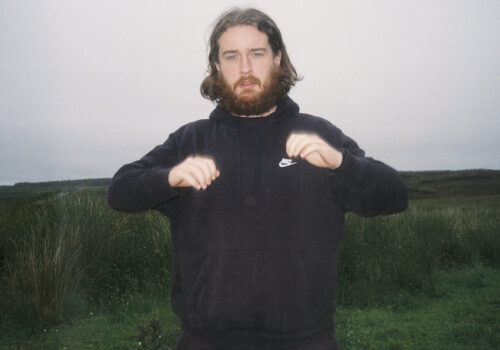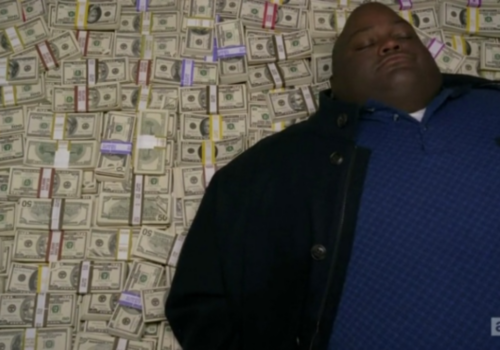The Global Far-Right are Exploiting a Broken Ireland
Words: Izzy Copestake
Image Credits: Florian Olivo (Grenoble, France)
From American white supremacist streamers to the leader of Britain First and the largest Trumpite trolling accounts online, the international far-right is fixated on Ireland, particularly especially right now. While this by no means absolves the growth of the hateful far-right rhetoric at home, it’s clear that an unaddressed drug and mental health crisis, coupled with rising cost of living are leaving Ireland increasingly vulnerable to extremism.
The hashtag, #Irelandisfull has been permeating social media platforms in Ireland for years, but there’s been a sharp rise since the violent riots in Dublin last month. Oddly, most of these new posts don’t even originate from Ireland, but from the US and UK. Sam Doak, a disinformation researcher at LogicallyFacts, discovered this strange pattern of specifically Irish anti-immigration posting abroad by analysing geographical data across X, Instagram, Facebook, and Reddit. What’s more, the hashtag #Irishlivesmatter was barely mentioned online until controversial far-right American shit-poster @catturd2 used it, ordering his 2.1 million followers to ‘trend it’. The account’s posts have been retweeted by Donald Trump several times and became known for spreading right-wing conspiracy theories and misinformation.
The international far-right’s interest in Ireland isn’t limited to anonymous keyboard warriors stirring up hate. Last week, former Fox News host Tucker Carlson dedicated an entire episode of his new show on X to ‘Dublin in Flames’, stating that the Irish Government is “trying to replace the population of Ireland with people from the third world”. This statement isn’t just factually incorrect, it’s a reformed take on the racist and anti-Semetic Great Replacement Theory, which became popular with white supremacists, neo-nazis, and far-right militants in the 2010s. Tucker was accompanied by former chief strategist to Donald Trump, Steve Bannon, who joined the ex-Fox News presenter in expressing outrage at the Gardaí’s investigation into Conor Mcgregor and falsely claiming that the new Hate Crime Bill will make it a crime to criticise the government. Unsurprisingly, the episode received furious backlash from much of Irish Twitter, with many users pointing out the blatant misinformation and evidence that the pair know nothing about Ireland.
Conor McGregor has been championed by international far-right figures after a series of tweets around the time of the Dublin riots caught international attention and appeared to align with their views. Significantly, McGregor tweeted misinformation about the man alleged to have stabbed three children and their carer last month, claiming the man was a ‘non national’, later tweeting that Ireland was ‘at war’ and, following the outbreak of the riots, posting ‘you reap what you sow’. The the man McGregor mentioned was an Irish citizen, who is originally from Algeria and been living in Ireland for 20 years. It has since been confirmed that this man was wrongly accused and he has been placed under Garda protection. Nick Fuentes, a prominent far-right American white supremacist who has been banned from YouTube for his racist and anti-Semitic content, stated in a particularly vile and racist episode of his show that the MMA fighter should “salvage the country because it’s either going to be the Irish or it’s going to be the blacks … only one side is going to come out of this alive.”
This crowning of McGregor as a far-right leader is unsurprising considering his previous tweets, but it’s also not a one-off. The global far-right have long used prominent figures in popular culture, both in the form of celebrities and fictional characters, to promote their own ideals. We saw it with the idealisation of the Joker in 2019, or more recently, the use of clips of Patrick Bateman on ‘sigma-male’ TikTok to celebrate and glamourise the far-right’s misogynistic standpoint. The Britain First party leader Paul Golding posted a strange, poorly generated AI image of the MMA fighter standing in front of a burning Dublin bus, surrounded by white men in tracksuits, holding torches and screaming. In the last 7 years, Golding has been in prison twice for actions and statements which have targeted the Muslim community, including violating court-orders to enter Mosques and encouraging others to do the same. The discourse from Fuentes and Golding demonstrates the severe level of extremity that is attempting to influence Ireland’s far right.
Reporting on the relationship between Ireland and America’s far-right, Wired’s David Gilbert wrote that the far-right Irish influencer Keith O’Brien, known online as Keith Woods, ‘has maintained relationships with the far right in the US.’ In the past year, O’Brien has grown internationally, speaking at a white supremacist conference in Tenessee and appearing as a guest on Fuentes’s show several times. While the O’Brian did not attend the riots in Dublin, he has used Telegram to state that the riots were the government’s fault, for allowing migrants to enter the country.
“Radicalisation happens when people are vulnerable to it”
Dr Nicola Fox Hamilton, Cyberpsychologist
Ireland’s own far-right movement has been growing for years, but in an age in which alt-right internet sub-groups can be joined with the click of a button, and misinformation circulates on all social platforms, it’s easy to see how the international far-right can infiltrate Ireland. But radicalisation does not happen in a vacuum. Cyberpsychologist and lecturer in applied psychology and cyberpsychology in the Institute of Art, Design and Technology, Dr Nicola Fox Hamilton, tells District that it’s not just down to social media. ‘Radicalisation happens when people are vulnerable to it. In Ireland, we have a major cost of living crisis, housing crisis, and drug crisis, none of which are being addressed by the government. Particularly in deprived communities, these are things which leave people open to radicalisation.’
As we’ve seen, the far-right community both in Ireland and abroad has blamed these issues on a single group; migrants. ‘This makes people feel better because then it’s not their fault. They can protect their own identity, and feeling good about themselves by blaming another group.’ While the visible far-right rioting we saw last month in Dublin was violent and shocking, Dr Fox Hamilton points out that the first stage of radicalisation is more gradual. ‘They can be fun, interesting, interested in you, and want to create a sense of community, and that’s what draws people in. But within that group, they try and change the way you view the world, so everything you see becomes about immigrants ruining your life. So, all you see is this in-group, being hard done by by this out-group, who you can blame for everything.’
“They try and change the way you view the world, so everything you see becomes about immigrants ruining your life”
Dr Nicola Fox Hamilton, Cyberpsychologist
The radicalisation process happens in stages, with not all who first enter the space becoming members of far-right radical groups. ‘The use of violent rhetoric makes violence acceptable, it ramps up over time. Some people will only get to the first stage of that, where they believe these things, but they’re not violent. Some people will get to a stage where they are engaging in very violent language against somebody, and creating a situation where people feel very unsafe, then there are other people who feel validated and encouraged by violent rhetoric and actually take part in violent acts.’ Dr Fox Hamilton, speaking about the Dublin riots, pointed out ‘most of the people looting and rioting were not far-right radicals, but the people organising it and creating that situation, were.’
Ireland has one of the worst drug and mental health crises in Europe, with the lack of a functioning public mental health service exasperating the issue with growing waiting lists. Average rent in Dublin is now €2,300, and the cost of living crisis has hit everyone hard, with the most deprived communities being pushed further into poverty. The picture for many is grim, but for extreme far-right figures, it’s the perfect breeding ground for hatred.
Elsewhere on District: The Pavement Campaign Challenging Sexual Assault in Dublin, This is the Most Critical Point for Nightlife in Irish History





